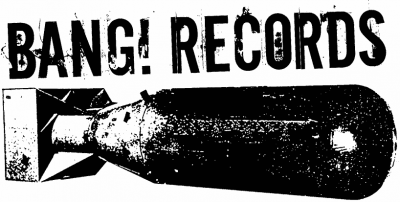 Having spent much of 2005 and 2006 touring the US and Europe in support of their Australian Music Prize-winning album Wait Long By The River And The Bodies Of Your Enemies Will Float By, The Drones mark their return to Australia with the release of their much-anticipated third album, Gala Mill.
Having spent much of 2005 and 2006 touring the US and Europe in support of their Australian Music Prize-winning album Wait Long By The River And The Bodies Of Your Enemies Will Float By, The Drones mark their return to Australia with the release of their much-anticipated third album, Gala Mill.
Recorded in a mill on an isolated 10,000 acre farm on Tasmanias east coast, Gala Mill is an album full of extremes – moments of stark, ghostly beauty are set against outbursts of the dark, intense noise for which the band is renowned. The albums sense of place is palpable – barking dogs and birdsong are heard between tracks, and the islands history and atmosphere resonate through the songs.
Singer Gareth Liddiard says, We just wanted to go somewhere interesting, to steer clear of the boring old studio. Studios can feel like hospitals for sick bands. And acoustically, recording the album where we did played a huge part in how it ended up sounding. Bassist Fiona Kitschin explains, The family who owns the farm and the mill have been there since the 1840s. Its beautiful. There are all these orchards around it, a creek near there you can swim in… and its meant to be haunted. A woman apparently comes upstairs into the bedroom and cries. Although, she laughs, We never saw anything. Itd probably be a better story if we had.
Like its setting, Gala Mill is unmistakeably Australian – not in a sense of flag-waving patriotism, but rather in that it is unafraid to address Australian history and mythology. Liddiard says, That was a conscious thing. To make an Australian sounding record is something thats been frowned upon over the years – its not cool. But cool is not cool, you know? You should just be what you are, its sad watching Australians trying to be Americans and Americans trying to be English and the English trying to be Americans.
Gala Mill is also as diverse and eclectic a collection of songs as The Drones have recorded to date. It opens with JEZEBEL, nearly eight minutes of sound and fury wound tightly around a complex lyric that encompasses subjects as diverse as nuclear testing in Australia, the Beslan school massacre, a cow that glows in the dark and the murder of US journalist Daniel Pearl.
DOG-EARED is a quietly introspective ballad – Sentimental, chuckles Liddiard, But in a nasty way.
IM HERE NOW chronicles watching friends slide into heroin addiction – Watching them do burglaries and armed robberies and killing themselves with trains and all the other bullshit people do to themselves and each other.
The haunting WORDS FROM THE EXCECUTIONER TO ALEXANDER PEARCE tells the story of the notorious convict Pearce who escaped twice from Macquarie Harbour, both times cannibalising his fellow escapees, and was eventually executed for his crimes. Tasmania is such a beautiful place, but it has such an appalling history, says Liddiard. History has practically cannonised the convicts, saying that they were all innocent and sent here for stealing a loaf of bread or whatever, and a lot of them werent like that at all. But even so… I mean, Pearce was an arsehole – he was a thief, I think eventually a rapist of other men too – but he lived a life, and he went from being like anyone else in a bad situation to being something so far from human… by the time they killed him, he was totally alone. He was an animal, but he had survived.
I DONT EVER WANT TO CHANGE is about depression and denial – Theres a certain something about holding onto your blues, a certain integrity, but you gotta change and you often do, whether you mean to or not. Your self looks after your self.
WORK FOR ME sees Kitschins debut on lead vocals, although as she laughingly admits, pointing at Liddiard, Its only because he made me! Gala Mill also looks to other artists for inspiration – I LOOKED DOWN THE LINE AND I WONDERED takes its title from a song by the 1930s gospel singer Sister Rosetta Tharpe, while ARE YOU LEAVING FOR THE COUNTRY is a breezy cover of a song made famous (or obscure) by Karen Dalton.
Its Gala Mills last track, though, that perhaps best exemplifies the ambition and scope of this record. SIXTEEN STRAWS is a lyric ballad without precedent in The Drones previous work, a song that draws on a rich tradition of Australian storytelling. Taking his inspiration and a first verse from the old traditional song Moreton Bay, Liddiard wrote some 30 further verses himself, weaving imagination and recorded history into the forlorn tale of a group of convicts who overcome the Catholic interdiction on suicide by drawing straws to decide which of them will kill another and get them all sent to the gallows.
Infused with a rich sense of history and yet utterly modern, both thought-provoking and viscerally compelling, Gala Mill marks the welcome return of one of Australias most intelligent, innovative and important bands.
————————–
Gareth Liddiard – Guitar/Vocals
Fiona Kitschin – Bass Guitar
Rui Pereira Guitar
Michael Noga Drums
